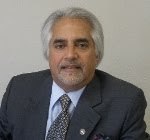Money Exchange in Indonesia
Exchanging money is an easy feat. Lose money at your peril.
The official exchange rate for one US$ is approximately 13000 Indonesian rupiah and 19000 for one British pound.
The official exchange rate for one US$ is approximately 13000 Indonesian rupiah and 19000 for one British pound.
The denominations are Rp 1000, 2000, 5000, 10000, 20000, 50000, 100000, a diverse set indeed. In most tourist streets around Bali, there are numerous exchange ‘shops’ that advertise their exchange rates on sidewalk street signs to the passing tourist traveling in a car, bicycle, taxi or motorbike. There are also banks that exchange money. Both these establishments offer quite different rates. You guessed it. The bank rate would be the official rate as indicated earlier in this section. The shop rate will be about 5 to 10% ‘better’. If the bank offers Rp13000 for 1 US dollar, the shop will offer 13900-14000. This difference is not what one can assume to be the difference between the official and the ‘black market’ rate. There is no ‘black market’ in Indonesia and just as so many ‘black markets’ in many Asian countries have disappeared altogether, Indonesia's is no exception.
A tourist is always tempted by bargains and will walk into one of these exchange shops, confirm the higher rate is indeed what is advertised and exchange their foreign currency. A one-hundred dollar or pound bill is not much for a few days stay in Bali so most likely, about 300 to 500 dollars or pounds will want to be exchanged. Looking at the high Indonesian currency value, even one British pound would retrieve several Indonesian notes and coins. When multiplied 300 times, the number and quantity of colored Indonesian notes being received by the tourist will seem highly lucrative (because we beat the bank rate), and mouth-watering (the thick bundle of received notes in quantity does not even compare with the three handed out. They are not going to fit into any wallet anyway) and at the same time make the tourist hasten not only because the large number of notes are attractive to other passers-by but also quite frustrating and time-consuming to count them all. Others might be waiting and rushing through the transaction seems imminent.
From his pedestal or behind his high counter, the friendly exchange vendor hands over all the Indonesian notes to be counted by the tourist. On accomplishing this minor counting feat in all of the heat of the moment, and verifying the amount is accurate, the vendor then proffers to the tourist either an envelope, rubber band or some such article to bind the notes together. While handling the notes from the tourist, the vendor then proceeds to stack the notes together, just as one would thump down against a table top the edges of paper sheets lengthwise and breadth wise in order to align them all in one neat bundle. This bundle for 300 dollars will be substantial. Believe me. It actually equals about four million rupiah! And of course, they will not be all in 100000 denominated bills to make life easier. The transaction will contain almost all the seven denominations because the vendor ‘does not have’ sufficient 100000 bills.
While ‘helping’ align all the notes, the vendor will thump down the stack of notes on his side of the counter which in all cases is higher from the ground than where the tourist is standing. The thumping down of the notes is very artful and several of them drop down from behind the stack of notes into an open drawer. The remaining stack which does not look diminished at all, because the stack was monstrous to begin with, is handed back to the unsuspecting tourist in an envelope. Try it yourself by taking a pack of cards or a sheaf of paper and while sitting in front of your desk, thump the pack or papers at the edge of where your desk meets your chair and let a few cards or papers from the back of the stack drop into your lap. The tourist merrily walks away none the wiser and the vendor has made ‘plenty good’ from the loss of his advertised exchange rate and what he will then exchange from a bank at the official rate.
You have been warned.
After you have counted all the notes, do not let the vendor handle it under any circumstances. You will soon find that he will not want to exchange your pounds or dollars, will hastily mass text message all the exchange vendors up and down the road as to your description so that you can never be successful in exchanging foreign currency at the tempting, sidewalk-advertised rate which you should not have looked at in the first place. Walk inside a regular bank!



